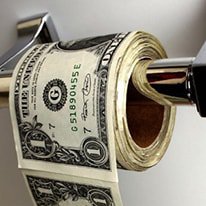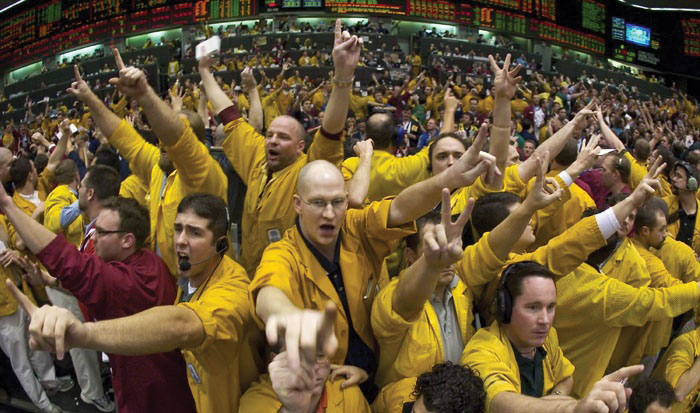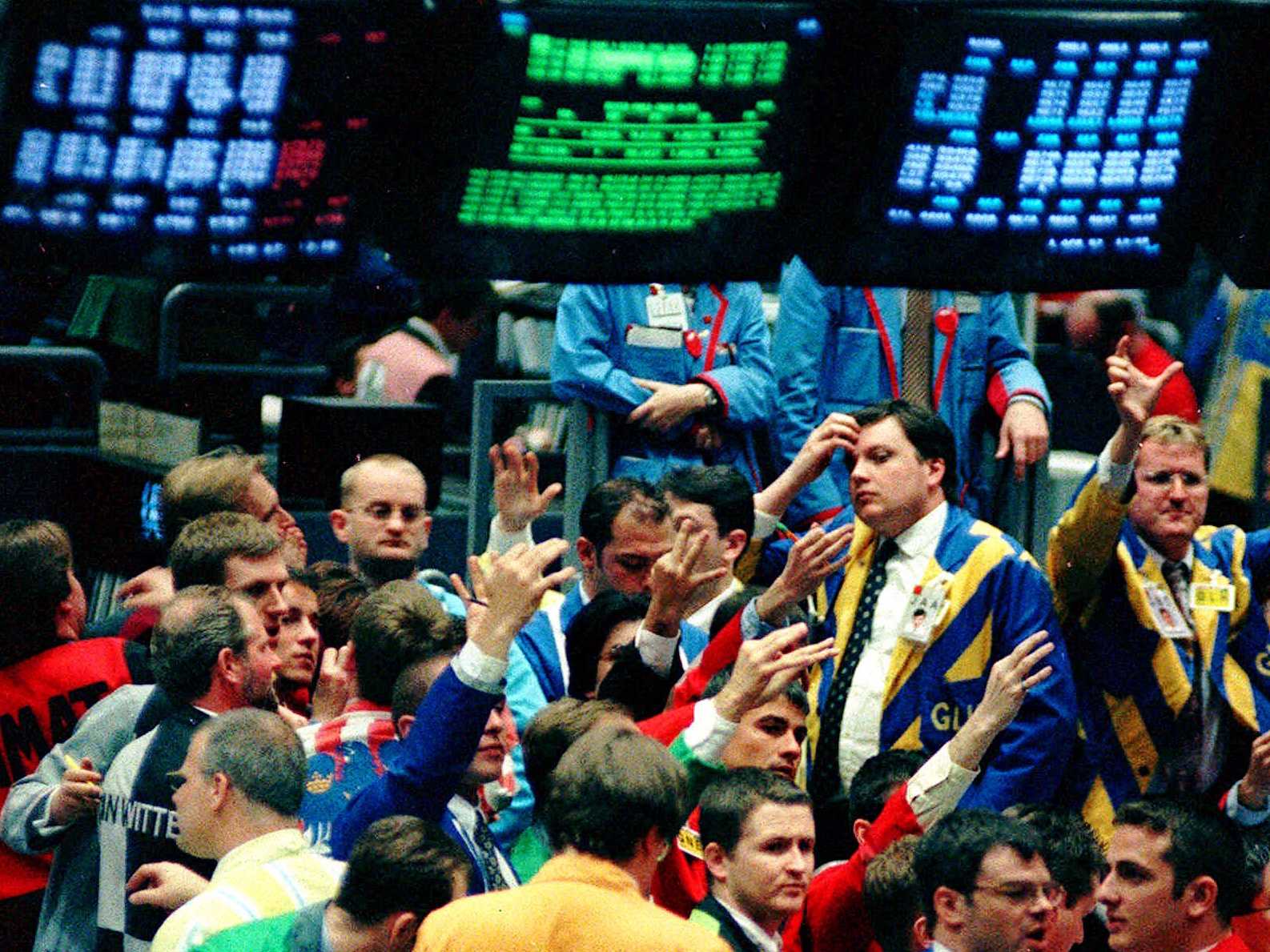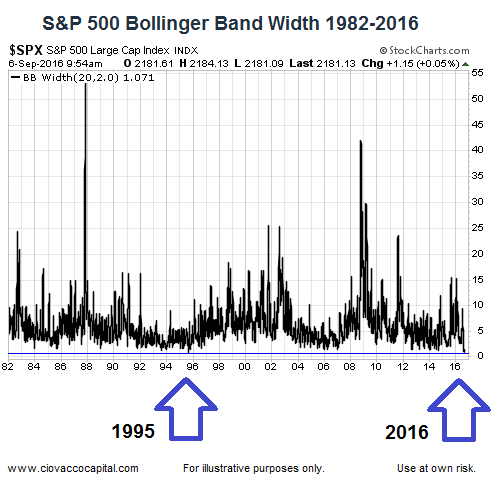Timing & trends
A year ago at this time, it was hard for investors to find available inventory for the most popular silver products – as well as some gold coins. Premiums for the silver American Eagle reached nearly $6.00 per coin. Mints and refiners couldn’t keep up with demand, and long lead times became par for the course across the silver product line.
Today, retail buying of physical silver has slowed considerably. There is lots of inventory in dealer vaults and the number of bullion investors looking to sell is on the rise.
Demand slowed even though nothing has changed the underlying fundamentals of metals markets. The world financial system is even more rickety today than it was in 2007, just before the last crisis. Bullion premiums are at the low end of their range. And prices finally appear to have bottomed and turned up. Yet bullion investors are largely sitting on sidelines.
Let’s take a look at why…
For starters, uncertainty rules the day, and not just in the precious metals. Retail investors aren’t buying the economic recovery story and the record high prices in the stock markets either. Year to date they have pulled roughly $100 billion from U.S. equity exchange traded funds (ETFs). Much of that was diverted into bond funds.
If that statistic makes you wonder just how stock prices manage to keep moving higher, the answer lies in corporate share buy-backs and bank prop trading desks playing with unlimited quantities of near-zero-interest-rate Fed cash.
Uncertainty Has Led to Paralysis
Then there are the questions surrounding this year’s presidential election. Investors aren’t merely uncertain. They are profoundly nervous when it comes to whether “The Donald” or Hillary will win and what that victory might mean. Regardless of which candidate wins, it appears at least half of the country will be very unhappy and gloomy about the national prospects.

The price action in metals may also be giving investors pause. Gold and silver were among the best performing assets for the first 6 months of the year. That means they’re moving from the perception of being cheap to expensive for some buyers. Others still wonder if the recent breakout in prices is the real deal – or whether it’s simply another short-term uptick in a continuing bear-market cycle.
Fatigue could be the biggest factor weighing on demand in the bullion markets.
Buying interest for coins, rounds, and bars was literally off the charts for much of the past decade. A wave of tuned-in people responded to repeated warning signals by aggressively building their stash.
For years now, one extraordinary event has followed another – Quantitative Easing, geopolitical turmoil, institutional fraud, you name it. However, the lifecycle of news events keeps growing shorter as fatigue takes its toll. Investors are finding it harder to stay engaged on big stories. Brexit, as a recent example, may well signal the end of the European Union and the euro, but its significance among investors faded within days.
This is compounded by the fact that markets are heavily managed to avoid immediate turmoil and postpone the consequences. Central bankers intervene everywhere, always ready to start buying whenever the headlines cry for investors to sell.
It is both tiring and frustrating to continue reacting to headlines, particularly when interventionists and high frequency trading algorithms stand ready to punish anyone who takes evasive maneuvers.
Investors Sitting in Cash for Protection Are Fooling Themselves
 It isn’t hard to understand why investors are seeking the sidelines. They are worn out and confused about what to do. So they hope to sit out of the game for now by holding cash or parking funds in a bond ETF.
It isn’t hard to understand why investors are seeking the sidelines. They are worn out and confused about what to do. So they hope to sit out of the game for now by holding cash or parking funds in a bond ETF.
The problem is that bankers and their comrades in Washington DC built the unstable financial arena everyone plays in, and they run the game. Contrary to conventional wisdom, the sidelines are no place for respite.
They are an illusion. You can hold cash or bonds with 5,000-year-low yields, but whether you realize it or not, you remain in the game, ready to be run over by currency debasement… or something far worse.
Anyone who wants to sit out needs to walk out of the arena. The only way to do that is to buy and hold physical bullion along with other non-paper assets. Then sit and watch what happens in the rigged paper game without worrying about the outcome.
Clint Siegner is a Director at Money Metals Exchange
….related:
“Emotion is primarily about nothing, and much of it remains about nothing to the end.”~ George Santayana
 If CNN, FOX, CNBC, etc. are the primary sources you use to base your investment decisions on, perhaps it is time for a change in strategy. These outlets focus on amplifying the “noise factor”. Their only function is to make sure that the crowd will over react to any given event.
If CNN, FOX, CNBC, etc. are the primary sources you use to base your investment decisions on, perhaps it is time for a change in strategy. These outlets focus on amplifying the “noise factor”. Their only function is to make sure that the crowd will over react to any given event.
There is too much information out there already and 90% or more of it is garbage. Conceivably, this is why experts who have been focussing on the fundamentals cannot understand why this market continues to surge higher. Fundamental data is provided in a standard format, so everyone that has access to it draws the same conclusion. Now, with EPS and other statistics being manipulated, the little value that fundamentals once offered is entirely negated. Perhaps, this also explains why so hedge funds are performing so poorly; in fact, except for a few standouts, investors lost and management was the only one that was getting rich, but that is a story for another day.
Hedge fund titans once ran their firms like elite private clubs, picking who made it past the velvet rope and how much they would pay for access to supercharged performance. Years of poor performance have now led a number of funds to consider something more like general admission.
“I see the herd mentality among hedge funds every day,” Roslyn Zhang, a managing director at China Investment Corporation, China’s sovereign wealth fund, said at the SkyBridge Alternatives, or SALT, hedge fund conference in Las Vegas last month. Describing how some funds spend “two seconds” on one theme before deciding to put investor money behind the idea, she added: “We pay 2 and 20 for treatment like this. I am reflecting that maybe we are not making the right decision. Full Story
Doug Dillard followed the path that once almost guaranteed entrance into the 1 Percent: Good college (Georgetown), an investment bank (Morgan Stanley), MBA (Harvard). Then a hedge fund. A decade out of business school, he was heading Standard Pacific Capital, a multibillion-dollar San Francisco firm that traded global stocks. It did well by its clients, making money in 2008 as markets plummeted.
But Dillard’s returns—like most other hedge fund managers’—failed to keep pace in the post-Great Recession bull market. Investors exited. In February, when assets slid below $500 million, Dillard pulled the plug. “It has recently become clear to both of us that sometimes there is a logical conclusion to even a good thing,” he and his partner, Raj Venkatesan, wrote to clients.They aren’t the only ones thinking their good thing might be gone. On April 26, Third Point manager Dan Loeb, one of the hedge fund elite, wrote to investors that the industry is “in the first innings of a washout.” At the annual Berkshire Hathaway shareholder meeting at the end of April, Warren Buffett told investors to keep money away from hedge funds because of their high fees and lousy return Ful Story
Money managers ( and other financial experts) are no different from the average Joe; they place too much value on useless information.
For the world’s top hedge fund managers, 2015 was a fantastic year, with an astounding amount of money made. Institutional Investor’s Alpha magazine released its annual review of how the top managers fared last year, and the tally for the group of 25 came in at nearly $13 billion, up 10 percent over 2014. In any year, that figure would likely grab headlines, but considering that it was the worst year for funds since 2011—with Atlantic Investment Management founder Alexander Roepers telling the Wall Street Journal “Everything went wrong”—those totals seem particularly enormous. Full Story
If hedge funds fared so poorly in 2015, then 2016 is going to be even worse, and 2017 could be a killer (as in Kaput) for many of the large funds. Most money managers are too brash, know next to nothing and follow each other. That is why so many funds are bailing out of NFLX and AAPL now when it makes more sense to buy than sell. Thus just like the masses they sell when it is time to buy and buy when its time to sell.
The world’s largest hedge funds cut their holdings in Netflix and Apple more aggressively than any other stocks in the second quarter, according to a new report.
The 50 biggest hedge funds sold $2 billion worth of Netflix shares and $1.8 billion in Apple stock between April and June, per an analysis of regulatory disclosures by FactSet. Full Story
More examples of what we term “Noise Events.”
Mass Media states markets were crashing in Aug 2015:
After the Media made a huge issue of this and said the world was about to end, lo and behold, the markets bottomed instead of crashing.
Mass Media once again, starts beating the drums of fear in Jan and Feb of 2016:
Once again they ended up biting the dust as the markets soared higher instead of crashing. Instead of embracing the pullback as a buying opportunity; they viewed it through the lens of fear. On both occasions, we openly stated that all sharp corrections had to be visualised through a bullish lens. Fear sells and that is why the Media loves to make a mountain out of a molehill.
Brexit:
Britain’s vote on Friday to leave the EU has sparked widespread turmoil and uncertainty, forcing Prime Minister David Cameron to resign and wiping more than $2 trillion of value from markets around the world.
Another event, where the press took extreme delight in sowing the seeds of panic and once again they were made to look like fools. If you look back after the initial panic, the world moved on as it always does.
We could list a countless more events and in each case, the outcome will always be the same; those that panic will lose and those that remain calm will reap the rewards.
As long as Fiat money exists, any alarm event should be viewed as an opportunity. There is just too much noise in this world today. In fact, there is so much noise that it is very hard to get a bearing on what is going on if you fixate on this nonsense. You need to look at everything with a disinterested gaze to spot the main pattern. If you are drawn in by an event, you are no longer thinking logically; your emotions are doing the thinking for you. Focus on the trend and not the noise; the trend is your friend everything else is your foe.
“Each of us makes his own weather, determines the colour of the skies in the emotional universe which he inhabits.” ~ Bishop Fulton J. Sheen
Big Moves Often Follow
Regular viewers of CCM’s weekly videos may be familiar with the expression “the longer a market goes sideways, the bigger the move you tend to get after a breakout or breakdown”, which aligns with the concept of periods of low volatility often being followed by big moves in asset prices.
Lowest Level Dating Back To 1982
Bollinger band width is one way to track relative volatility. When Bollinger band width readings hit extremely low levels, it tells us to be open to a big move. The S&P 500’s daily Bollinger Band width has never been lower than it is today, using data back to 1982, which means a big move could be coming soon in stocks.
….related:
Michael’s Featured guest John Johnson, Chief Strategist of of Davis Rea – Be Really Careful Here

I have been warning that 2017 was the Year of Political Hell with four major referendums/elections that would undermine the confidence in government – BREXIT, US Presidential Elections, French Elections, and Germany Elections. These four events hold the potential to overturn the expectations of the future. Whatever the general public felt about government would flip. The key to a shift from Public confidence to Private lies within the scope of these four elections. This is what our computer has been forecasting – political instability on the rise. This is the age of anti-establishment (3rd party) rising globally.
However, I have also warned.….continue reading HERE
Victor Adair is positioning himself on the short term to take advantage of multiple markets that look to be heading down, Oil, CDN Dollar, Gold. Even a short sale is the only position he wants on Stocks right here.
…related Michael Campbell on: Complexity Failure Crisis & Panic















